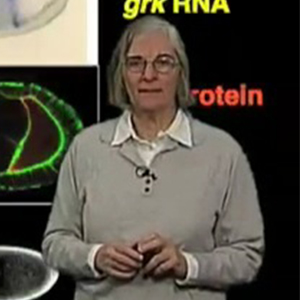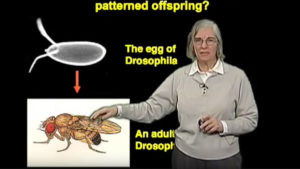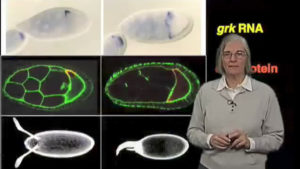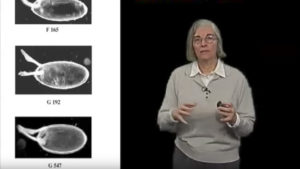Trudi Schupbach is Professor of Molecular Biology at Princeton University and a Howard Hughes Investigator. She grew up in Switzerland, and did her undergraduate and graduate work at the University of Zurich studying the development of the genital disc and sex determination in the germline of Drosophila. She moved to Princeton as a research associate in 1981, where she began her work on the study of axis formation and cell to cell signaling during Drosophila oogenesis.
She became a member of the tenured faculty at Princeton in 1990, and an Associate Investigator of the Howard Hughes Medical Institute in 1994. She has identified and characterized many genes that act during oogenesis to set up the polarity and pattern of the egg and the surrounding follicle cells. Her most recent work has also uncovered a meiotic checkpoint mechanism that affects patterning in oogenesis.
Dr. Schupbach is a member of the American Academy of Arts and Sciences and of the National Academy of Sciences. She serves as Associate Editor of Genetics and of Advances in Genetics, and she is a member of the Editorial Board of PNAS and Developmental Cell.
She was awarded the Edwin F. Conklin Medal by the Society for Developmental Biology, and she has served as the president of the Genetics Society of America.







